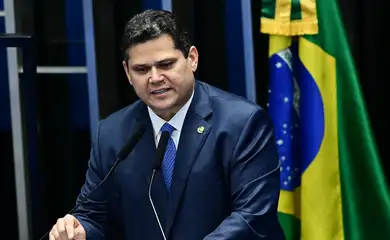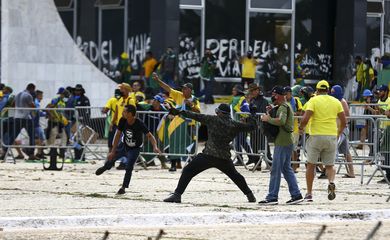Plan for coup in Brazil was conceived in 2021, prosecutors find

March 2021 can be considered the month in which a plan to disrupt Brazil’s democratic order and stage a coup d’état was set in motion by Jair Bolsonaro and his allies, according to the charges filed by the country’s Prosecutor-General’s Office. On March 8, Supreme Court Justice Edson Facchin overturned Luiz Inácio Lula da Silva’s convictions in connection with Operation Car Wash and allowed him to run for office again.

Lula had been tipped as then President Jair Bolsonaro’s main opponent in the following year’s presidential election, and opinion polls showed the Workers’ Party (PT) member in the lead.
The political landscape mobilized Bolsonaro’s supporters, who realized “the need for prompt coordinated action against the dreaded possibility looming large over them. That was when they set about implementing the plan orchestrated to maintain president in power regardless of the outcome of the polls the following year,” Prosecutor-General Paulo Gonet wrote in his report to the top court.
Still in March, a few days after Lula was allowed back on the presidential race, the Bolsonaro allies who would become the main actors in the conspiracy began considering having Brazil’s then president challenge the Supreme Court and flout its decisions.
In the following weeks, the group proceeded to advocate the idea of undermining the legitimacy of the Brazilian electoral process and the possible victory of Bolsonaro’s opponent.
“The group documented the idea of ‘establishing a discourse on voting machines and voting’ and of replicating this narrative ‘time and time again,’ in order to de-legitimize an electoral result unfavorable to them and to provide the conditions for the overthrow of the elected government,” the text reads.
Voting machines under fire
The insurrection plan took some three months to be put into practice. On July 29 of that year, Jair Bolsonaro made a live broadcast from the Planalto presidential palace in which he criticized the electronic voting system and praised the work of the Armed Forces.
From then on, the prosecutors said, Bolsonaro began to make increasingly aggressive public pronouncements, with direct attacks on the branches of government, with the aim of causing indignation and revolt among his supporters. The ultimate goal, the document says, was to make the use of force acceptable—and expected—should Lula win the 2022 elections.
Even after the lower house decision to maintain vote counting systems, reached in a session on August 10, Bolsonaro insisted on his assaults on the electoral system.
During the celebrations for Brazil’s Independence Day on September 7, 2021, Bolsonaro gave a speech in São Paulo in which he “made known his intention to no longer submit to the deliberations of the Supreme Court, confident as he was in the support he was to have from the Armed Forces.” At this point, the prosecutors believe, the group around the then president had already drawn up a strategy that included an escape for Bolsonaro in case he lacked support for the coup d’état.
“[I’d like] to say to those who want me barred from running for office in Brasília—only God take me out of there. And to those who think they can remove me from the presidency with a stroke of the pen, I’ll say this for all of us—we have three alternatives, especially for me: imprisonment, death, or victory. [I’d like] to tell the scoundrels that I’ll never be arrested,” Bolsonaro said in his speech at the time.
As the months passed and the 2022 elections approached, the attacks on the electoral system escalated and included false and manipulated accusations about the supposed vulnerability of the electronic ballot boxes. All attempts to undermine legitimacy were answered officially by judicial authorities with technical arguments, but this continued to be ignored by Bolsonaro and his allies.
Meetings
On July 5, 2022, with Lula as the favorite in the presidential race, Bolsonaro is said to have called a ministerial meeting to incite attacks on the polls and the spread of fake news against his rival. At the meeting with the ministers, the prosecutors said, “there was unequivocal talk of the ‘use of force’ as an alternative to be deployed if necessary.”
During the meeting, General Augusto Heleno—one of those accused of being part of the group plotting the coup—when as far as to say that whatever had to be done would have to happen before the election. “If we have to turn the tables, [we have to do it] before the elections.”
On July 18, the then president summoned ambassadors and diplomatic representatives from other nations to a meeting in which he made further accusations regarding the alleged fraud he said was bound to take place in that year’s elections.
Action
In addition to spreading false information about the electoral system, the group is said to have tried to intervene directly in the electoral process. During the second round of the election on October 31, federal highway police officers carried out operations on roads to hinder voters’ access to electoral districts where Lula had obtained the most votes in the first round.
The locations of such operations had been defined in advance, based on mapping carried out by security agencies linked to the Ministry of Justice and mobilized illicitly for the task, the prosecutors reported.
After Lula’s victory, the criticism of the electoral system persisted, even following the inspection of voting machines by the Ministry of Defense, which assured that no flaws could be found in the voting system.
The idea to keep up the criticism of the electoral system after Bolsonaro’s defeat was meant to encourage the supporters of the then president—whose term would end on December 31—to remain camped out in front of the barracks, calling for a military intervention to stop the inauguration of the winning candidate.
The coup plotters intended to use the mobilized militants to sensitize the Armed Forces, especially the Army, in order to have them impose a state of exception, prevent Lula’s inauguration, and ensure the defeated candidate remained in office.
In November 2022, a few weeks before Lula’s inauguration, agents with special forces training, known as the Kids Pretos (“Black Kids”), convened in an attempt to win the support of the Army’s top brass. In addition to putting pressure on Army leaders, the conspirators set out to attack general officers who opposed the ongoing coup on online networks.
Draft executive acts were also drawn up in a bid to formalize the disruption of constitutional order, which included the arrest of Alexandre de Moraes, chief justice of the Supreme Court at the time.
According to the prosecutors, then Defense Minister Paulo Sérgio Nogueira de Azevedo also met with the commanders of the three Armed Forces to garner support for the coup, but was only joined by the top representative of the Navy, Admiral Almir Garnier Santos.
Assassinations
In addition to the fake news campaigns to discredit the electoral system, the affronts to judicial authorities, the defamation of military personnel who did not support the insurrection, and the plot to stage the coup, the members of the criminal organization are also believed to have devised a plan inside the presidential palace, entitled Punhal Verde-Amarelo (“Green-Yellow Dagger”), aimed at assassinating Lula, his running mate Geraldo Alckmin, and Justice Alexandre de Moraes.
“The plan was concocted and brought to the attention of the president, who agreed to it, at the same time as a report was released in which the Ministry of Defense was forced to acknowledge that there was no detection of fraud in the elections,” the prosecutors’ report reads.
The preparations for the murders were completed and the only reason they were not carried out on December 15 was because the plotters were unable to co-opt the Army commander at the last minute.
The prosecutors stated that, after all these botched schemes, “frustration overwhelmed the members of the criminal organization.” Even so, they did not give up on their efforts to keep Bolsonaro in power.
Demonstrations against the new president, Lula, were slated for January 8 in Brasília and became the great hope of bringing the coup to fruition.
“The organization encouraged the mobilization of a group of people outside the Army headquarters in Brasília calling for a military intervention in politics. The marchers walked down the entire avenue linking the Urban Military Sector to the National Congress building, accompanied and escorted by military police from the Federal District,” the document states.
The January 8 demonstrations were marked by break-ins and the ransacking of the headquarters of the three branches of government and have been viewed by the Supreme Court in several criminal cases as an attempt at a coup d’état.
According to the prosecutors, the coup, which had been in the works since mid-2021, only failed to materialize because the army commander and regional commanders of the Armed Forces decided not to join in, thus sticking to their constitutional duties.







